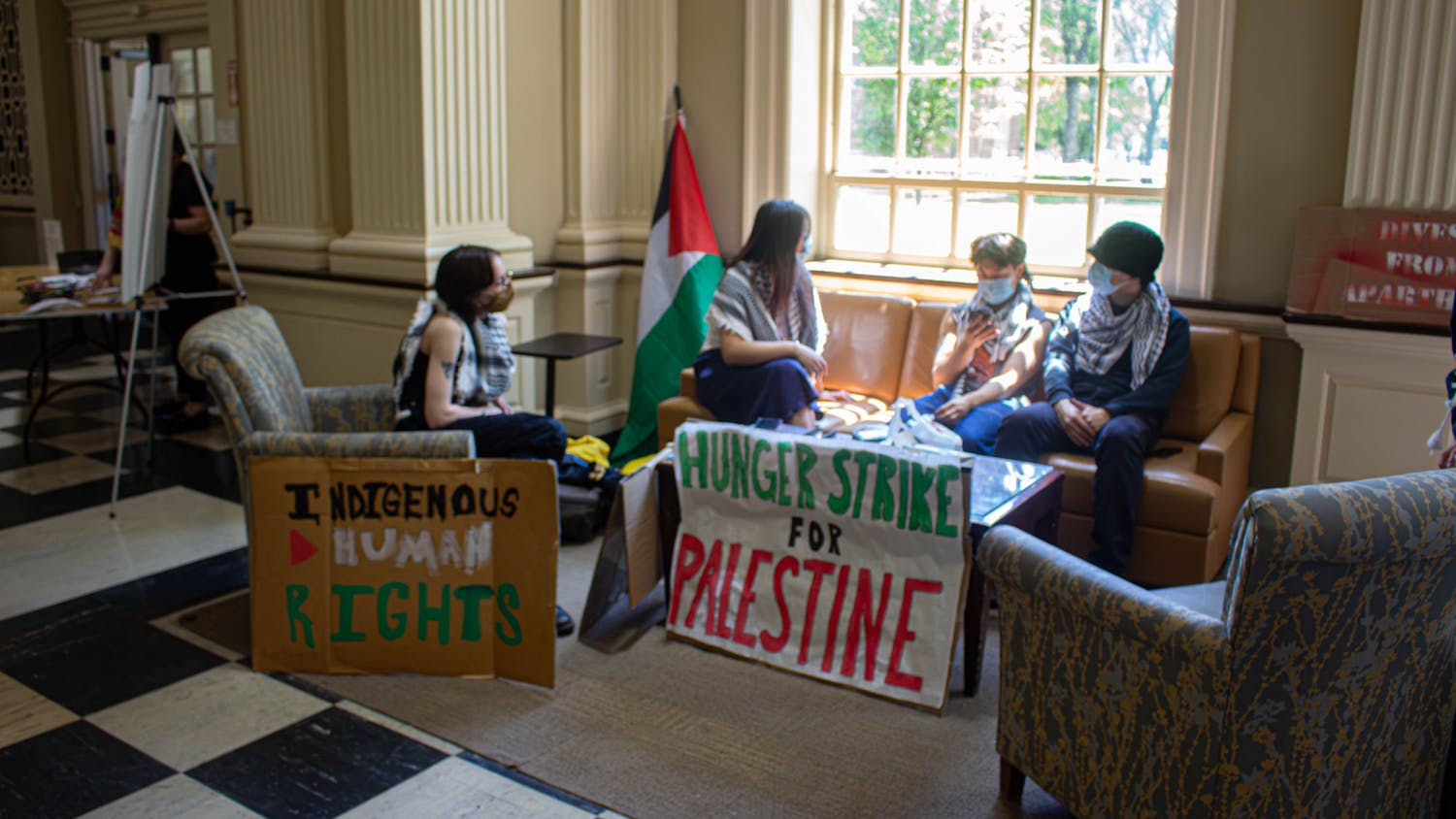Amid rampant rumors of alumni disenfranchisement, Dartmouth alumni leaders and their critics have clashed over a set of constitutional changes intended to streamline the structure of the College's Association of Alumni. The conflict centers around both the impact of the proposed amendments and the process that produced them.
The draft constitution would combine the Association, a 62,000-member body representing all College alumni, with the Alumni Council, currently a 96-member group that exists "to guide and direct Dartmouth alumni affairs." According to a letter from alumni leaders, Association affairs would be managed by the Council, which would be renamed and expanded in size.
The Council -- now responsible for "conveying alumni sentiment" and nominating alumni candidates for the Board of Trustees -- would additionally be charged with supervising the actual trustee elections. The Association's executive committee, a body that would be dissolved under the proposed changes, presently holds that responsibility.
Alumni leaders and College officials said the revisions will strengthen the voice of alumni in Dartmouth affairs.
"In my opinion, the changes will create more democracy for alumni," Director of Alumni Leadership Patricia Fisher '81 said.
In contrast, critics such as William Tell '56 described the revisions as "trying to close the governance door in a way that is not procedurally fair or in the interest of the College in the long term."
Any change in the Association's constitution, however, requires a lengthy process. If the amendment passes at a convention in Hanover next month, it still must gain the support of two-thirds of the entire alumni body in a spring vote.
At this point approval seems likely -- leaders of the Association joined the Council in co-authoring an open letter last month strongly endorsing the revisions and urging all alumni to vote in favor of them.
Anatomy of the change
The revisions are the proposal of a joint committee, formed two years ago and consisting of officers from both the Association and the Council. However, one of the chief disagreements is over the openness of the committee and the publicity of the amendment proceedings.
"It's the process that's gotten most of us so troubled," Tell said. "[Alumni] weren't getting mailings, we weren't invited to meetings. The alumni body hasn't had the opportunity to participate."
According to Tell, a recent alumni-funded study found that 89 percent of College graduates were unaware of the proposed changes.
Fisher, however, said the constitutional committee has solicited input from College graduates for the past two years.
"The committee has bent over backwards to publicize what they've been doing," Fisher said. "They sent out emails to all the alumni for whom we have addresses. They scheduled town meetings everywhere from Dallas to Philadelphia to Chicago to New York."
Alumni trustee elections
Alumni elect seven of the fourteen members of the Board of Trustees -- perhaps the most formal role graduates have in the College's affairs. Proponents and detractors of the changes dissent over whether elections will be materially affected.
Currently, the Council nominates three candidates for alumni trustee positions. Additional candidates can be added to the ballot if they collect the signatures of 500 alumni. The entire collective of 62,000 alumni then votes, with the winner serving a five-year-long term.
Under the new system, two candidates would stand for each position, with additional candidates requiring the signatures of one percent of the alumni body to get on the ballot. All alumni would retain their suffrage in the subsequent general election.
Supporters of the amendments said the changes would not substantially influence the election process.
"There will be no real effect on the way Trustees are nominated and no change is anticipated in the way Trustees are elected," Vice President of Alumni Affairs Stanley Colla '66 said.
Fisher added that the current process is part of a relatively recent trend of greater alumni empowerment in trustee selection.
"Prior to 1990, there was a single candidate who was placed on the board unless there was opposition," Fisher said. "There was only an election if there was a petitioned candidate, and it was very rare to have a petitioned candidate."
Detractors said the amendments will diminish alumni influence, which they said is already on the wane.
"The percentage of alumni that vote is down to 20 percent and has been dropping each year," Tell said.
Tell also said more stringent requirements for non-nominated candidates will further secure the dominance of a "small group of insiders" over alumni politics. Tell noted that a write-in candidate for alumni trustee would now need approximately 600 signatures to get on the ballot.
Fisher expressed doubt as to the substance of this criticism.
"I don't think one percent is a very high threshold," Fisher said. "People shouldn't be able to petition onto the ballot unless they're really serious."
Alumni organizational leadership
Opponents of the changes also said the new constitution would effectively take control of the Association away from alumni, placing alumni organizational affairs in the hands of a selected few.
"We're going from 62,000 to 122, and I don't know how representative those 122 are," Tell said. "The Alumni Association will no longer elect its own officers or its own executive committee."
Proponents of the changes said alumni will, in fact, be better represented and more influential.
"The size of the Alumni Council would grow, more classes would be represented and alumni will have more say," Fisher said.
Under the proposed amendment, there would be 57 alumni representatives elected by their respective classes, up from the current 33. The proportion of other representatives would change slightly.
Most notably, the number of representatives from affiliated organizations would increase from four to eight.
Thus, four such groups -- representing Asian, black, gay and lesbian and Native American alumni -- would each hold two seats on the Council.
Under the amendment, Tell said, such groups could possibly be given additional influence out of proportion to their representation in the alumni body.
"The alumni relations office can certify additional affiliated group seats," Tell said.



